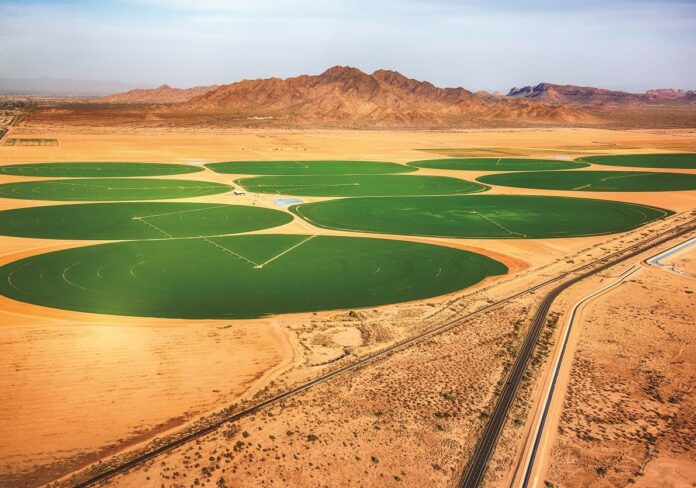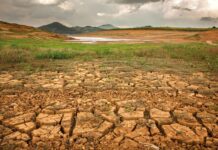By Keith Hayward
The focus of this year’s UN World Water Development Report, the eighth in what has become a series of annual, thematic reports, is valuing water. In their preface, Michela Miletto, UNESCO World Water Assessment Programme Coordinator, and Richard Connor, the report’s Editor-in-Chief, comment: “The bottom line is that there is no one “true’ value of water.”
What they have sought to deliver in the report is “a balanced, fact-based and neutral account of the current state of knowledge, covering the most recent developments, and highlighting the challenges and opportunities that a greater attention to valuing water can provide”.
Recent efforts to achieve progress in this area have included the Bellagio Principles for Valuing Water set out by the UN/World Bank’s High Level Panel on Water. This offered five fundamental principles: recognise water’s multiple values; build trust through processes that are inclusive of multiple values; protect the sources; educate to raise awareness of the essential role of water; and invest and innovate, harnessing new ideas and drawing on indigenous knowledge.
Yet, as the report notes: “There is still a surprising lack of clarity as to the recognition, measurement and reconciliation of the full range of values on the ground. Debate reigns over how best to capture, and give due attention to, the values of water.”
Five perspectives
The report is built around reviews covering five broad perspectives, each of which includes its own approaches and challenges as far as valuing water is concerned.
The first perspective is about valuing water sources. Here, water is intrinsically linked with the environment, where it sustains ecosystems.
As complex as valuing water may be, it remains an absolutely necessary step
There are three perspectives closely connected with core water uses: one on valuing water infrastructure; one on valuing the services of water supply, sanitation, and hygiene; and one covering water as an input to food, agriculture, energy, industry, and business.
The fifth perspective covers the cultural aspects of water, including recreational and spiritual dimensions.
“The overall importance of this vital resource is not appropriately reflected in political attention and financial investment in many parts of the world,” the report states. “This not only leads to inequalities in access to water resources and water-related services, but also to inefficient and unsustainable use and degradation of water supplies themselves, affecting the fulfilment of nearly all the SDGs, as well as basic human rights.”
There are challenges within each of the perspectives. For example, there has been progress in how to value the environmental dimension of water sources in terms of ecosystem goods and services. But the report notes that there are gaps in knowledge of the interdependence of ecosystems and their services.
The bigger challenge is how to connect the different perspectives.
Multi-value approaches
The report makes the case for greater emphasis on bringing together multiple perspectives in water governance. This needs the active participation of a broader set of actors.
“It may bring greater emphasis on ecological and environmental processes, and refocus efforts on sharing water resource benefits ñ for present and future generations ñ rather than allocating water quantities for highest-value economic priorities,” the report states.
The report explores some of the challenges around this. These include the challenge of bringing more diverse voices into any discussion. “In reality, individuals or groups from indigenous communities, women, and youth groups are often not included, not considered “relevant’, or, for other reasons, impeded from participating in relevant decision-making processes,” it states.
It notes that having more participation by more actors will not necessarily resolve competing interests. There is a challenge both in terms of what methodology might be used as the basis for balancing trade-offs and in terms of how to have an open, inclusive and balanced process for making decisions.
“The contribution of valuation or measurement for such inherent political deliberations can be seen to lie principally in how it can expose the diverse values attached to water, and the different ways such values may ñ or may not ñ be captured,” the report states. “This can also enable decision-makers to explicitly acknowledge which values are driving water governance decisions.”
The report sets out some of the pathways towards what it terms “multi-value water governance processes”. These include strengthening multi-stakeholder processes that recognise and reconcile a comprehensive mix of values in water governance; including benefit sharing in water governance decisions; focusing on systems to go beyond narrow sectoral interventions; and integrating ecological and environmental values into climate-resilient water management.
“Water managers and decision-makers need to reach out beyond “the water sector’, not only to reach those sectors and industries that implicitly decide over land and water use in the course of running their businesses, but also to include communities that have historically been excluded from natural resource governance and water management,” the report adds.
This outlook is built on a systems perspective, including ecosystems-based, nexus and climate-resilient approaches to water management, and the report adds that this may help stakeholders find new and mutually beneficial ways to cooperate.
An absolute necessity
“As complex as valuing water may be, it remains an absolutely necessary step in addressing water-related challenges worldwide. Otherwise, water will remain poorly accounted for and, thus, routes to its better management harder to identify,” the report states.
Failure to take in different values “can lead to inequitable sharing of benefits, inadequate reconciliation of negative impacts and costs, unsustainable solutions, unintended consequences, risks, and weakly performing policies and institutions,” it adds.
The report concludes: “The demand for valuing water needs to be created. Water is universally under-priced and undervalued. Very few governments, businesses or citizens are demanding that water is valued.” •








